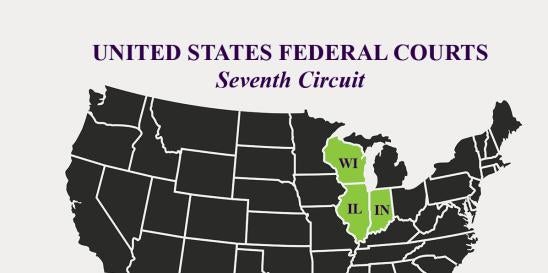In a recent decision in a defamation case filed against a Gannett-owned publication and the Associated Press, the Seventh Circuit rejected what it dubbed a “novel interpretation” of an established legal principle, instead upholding the doctrine known as the “single publication rule.”
The U.S. Court of Appeals for the Seventh Circuit in an opinion published August 31 affirmed the United States District Court for the Southern District of Indiana’s dismissal of the libel suit that the plaintiff, the National Police Association (“NPA”), brought against the media outlets. The Court ultimately noted that there was “no basis for the NPA’s theory of liability.”
The case originated in 2019 when the Indianapolis Star and the Associated Press published articles about police departments across the country warning via social media constituents about fundraising “scams” claiming to raise money for the departments. The posts referred to NPA solicitations, and the articles featured statements from officials characterizing the NPA’s efforts as misleading to the public.
The NPA called the representations false and sought retractions from the police departments. The organization filed lawsuits against some of the departments and quoted officials, eventually obtaining what the organization considered to be “retractions” of the statements. The organization then approached the media outlets seeking retractions by them and removal of the articles. The media outlets refused, and the NPA filed a lawsuit in May 2021.
In February 2022, the district court granted the publishers’ motion to dismiss, noting, among other reasons, that the NPA never alleged that the statements were originally published with “actual malice” – meaning that the publishers were aware of an inaccuracy or entertained serious doubts about the accuracy of the material.
On appeal, the NPA “pressed [a] theory . . . based on a novel interpretation of the Restatement (Second) Torts 577(2),” which says that “[o]ne who intentionally and unreasonably fails to remove defamatory matter that he knows to be exhibited on land or chattels in his possession or under his control is subject to liability for its continued publication.” The NPA asserted that Gannett and the AP were liable for defamation because per 577(2), the publishers had a duty to remove the articles from their websites upon being informed that the statements from the officials and departments were defamatory.
The Court, however, rejected that reasoning, stating that the context surrounding 577(2) indicates that such a duty extends only to allegedly defamatory material posted by another – a third party – and not by the property owner. Ultimately, 577(2) did not create a duty “regardless of the author” as the NPA asserted, and instead, 577(2) did not apply where the defendants posted the material on their own websites. In a footnote, the Court also noted that the Restatement is a “recapitulation of established legal norms across states” that does not have the force of a statute.
The Court went on to note that Indiana did not adopt 577(2) for online publication liability and that the majority of courts have rejected attempts by plaintiffs to argue that online articles are subject to defamation liability based on post-publication notice of falsity. Indeed, under what is known as the “single publication rule,” a defamation claim is complete the moment a story is published, and after-the-fact information that comes after the initial publication does not impact the analysis as to whether the initial publication was made in good faith and without actual malice. The Court cited a number of Seventh Circuit cases applying the single publication rule, including Pippen v. NBCUniversal Media, LLC, 734 F.3d 610, 615 (7th Cir. 2013) (“Every state court that has considered the question applies the single-publication rule to information online.”), and Pack v. Middlebury Community Schools, 990 F.3d 1013, 1018 (7th Cir. 2021). Based on this reasoning, the Court ultimately rejected the NPA’s “novel” theory of liability stemming from the Restatement (Second) of Torts, declined to certify several questions to the Indiana Supreme Court, and affirmed the lower court’s dismissal.


 i
i


